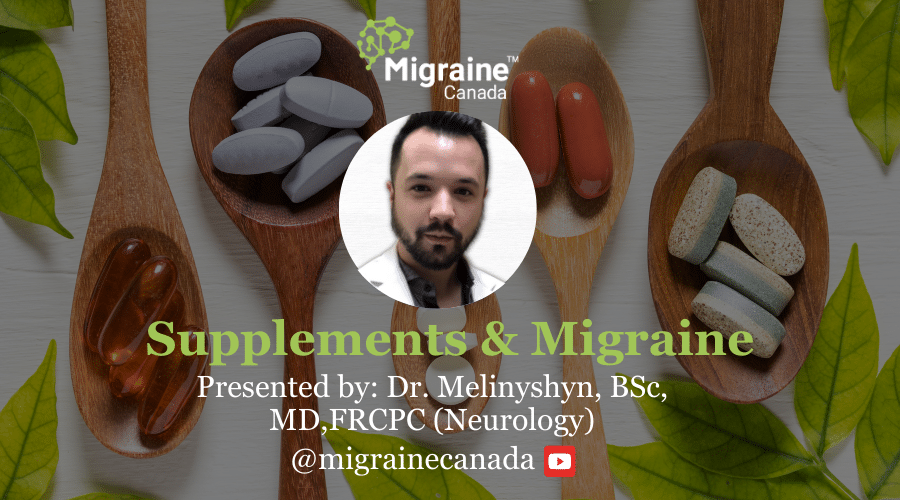Supplements for Migraine Treatment, Prevention, & Management
Supplements for Migraine Management can play a meaningful role in a holistic approach to preventing and managing migraine. In this educational session, Dr. Melinyshyn, BSc, MD, FRCPC (Neurology), explores evidence-based supplements that may help reduce migraine frequency and severity, and outlines key safety considerations for patients and healthcare providers alike.
The session begins with an overview of migraine—highlighting common symptoms, triggers, and the impact this neurological condition can have on daily life. It emphasizes the importance of prevention and how supplements can complement medical treatment and lifestyle changes.
Several supplements have shown promise in clinical research. These include:
- Magnesium, which supports nerve function and has been linked to fewer migraine attacks when taken in recommended forms and dosages.
- Riboflavin (Vitamin B2), known for its role in mitochondrial energy metabolism, has demonstrated effectiveness in prevention.
- Coenzyme Q10 (CoQ10), which boosts cellular energy production and may reduce migraine frequency.
- Butterbur, which has shown positive results but must be used with caution—only PA-free formulations are considered safe due to liver toxicity concerns.
Dr. Melinyshyn also discusses the risks and limitations of using supplements. Not all products are created equal, and quality can vary significantly. Some supplements may cause side effects or interact with medications, so consulting a healthcare professional is crucial before beginning any new regimen.
The session encourages a whole-person approach, combining supplements with lifestyle strategies such as healthy sleep, stress management, and consistent hydration. Migraine tracking is also recommended to assess supplement effectiveness.
Watch the full session on Migraine Canada’s YouTube Channel. Learn more about supplements for migraine at:



